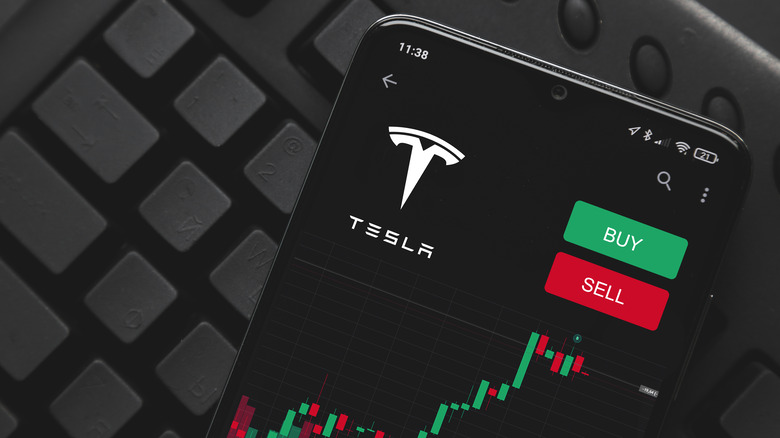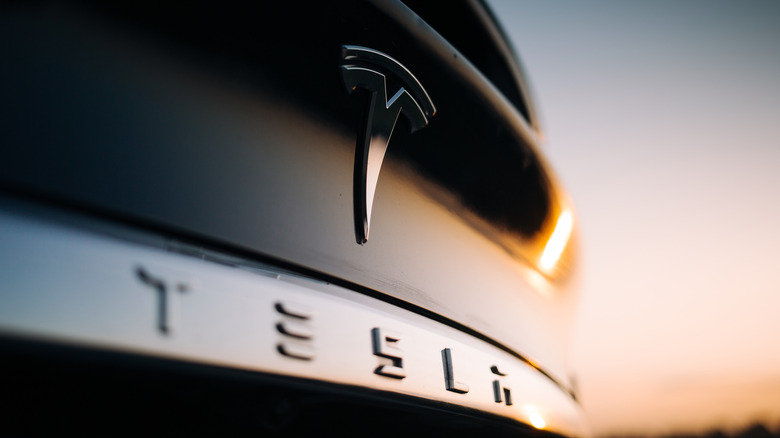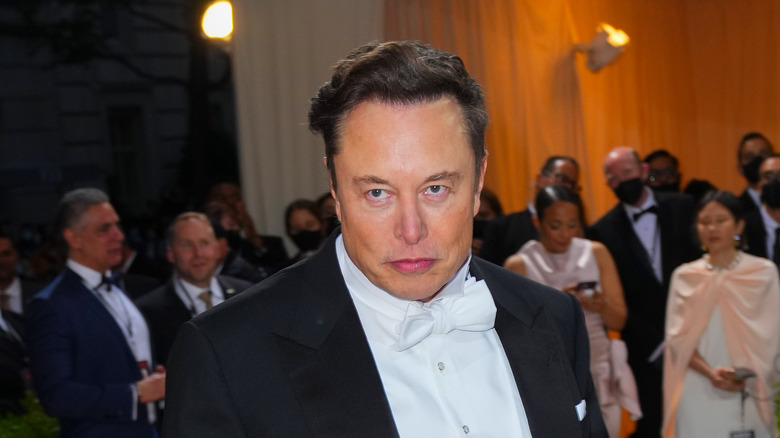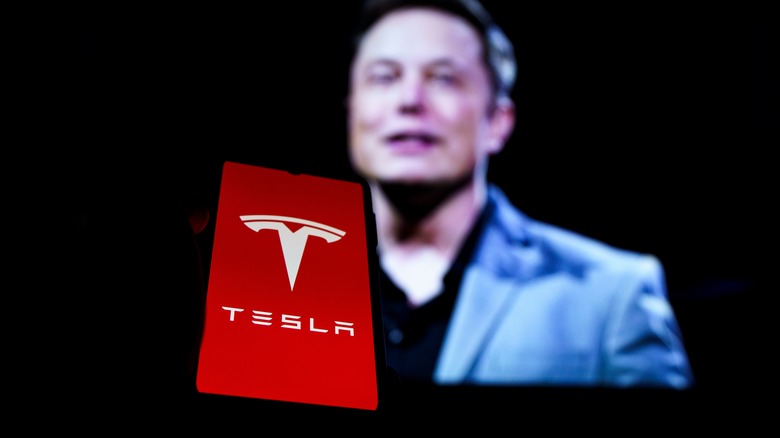Why Tesla Just Took A Major Blow In The Stock Market
Tesla has been removed from the latest edition of S&P Global's 500 ESG Index following its fourth annual revision, as explained in an Indexology blog post, sparking a domain-wide debate around the legitimacy of the move and drawing sharp criticism from industry stakeholders, including Elon Musk. Just to be clear, the exclusion is not permanent, and the company can claw its way back in after re-assessment for the upcoming editions of the S&P 500 ESG Index in the years to come.
But the reputation loss from the exclusion is going to hit Tesla's fortunes, especially with Wall Street sentiments that are likely going to reflect on Tesla's stock price and future investment outlook. That's because investors see S&P's list as a compilation of companies worth putting their money in, based on environmental, social, and governance metrics. So, what's gone wrong with Tesla? S&P has cited Tesla's alleged lack of "carbon strategy and codes of business conduct" as the reason behind its absence from the list.
Starting with the environmental part, Tesla hasn't really made a good splash in the recent past. According to a report from As You Sow, Tesla — ranked at the bottom with an "F" rating — is making the slowest progress at reaching the hotly debated net-zero emission target despite leading the global chatter around sustainable energy and its commercial applications from cars and commercial power supply to rooftop solar panels.
Why has Tesla been removed?
In its official release, S&P Dow Jones Indices — a division of S&P Global — notes that Tesla's S&P DJI ESG Score was pushed to the bottom quarter of the global GICS industry group in which the company is assessed. However, the reasons for that happening are both within and beyond Tesla's control. Despite the EV-maker's S&P DJI ESG performance being "fairly stable" over the years, it fell down the ranks because the GICS industry group recorded an "overall increase" in its average S&P DJI ESG Score, pushing Tesla down the list and into the bottom 25% tier.
Coming to the more concrete reasons that contributed to Tesla's departure from the list, S&P cites two alleged "controversial incidents." The first one is a series of allegations brought upon the company by former workers claiming a culture of racial discrimination against Black employees at its California plant and the lawsuit stemming from it (via LA Times). The second one circles around how Tesla handled its tiff with the National Highway Traffic Safety Administration (NHTSA) following reports of injuries and death allegedly resulting from the autopilot system in Tesla cars.
And even though S&P claims to recognize Tesla's efforts at booting fossil fuel-consuming cars off the roads, it notes that Tesla "has fallen behind its peers when examined through a wider ESG lens." Then there's the tragedy of hapless buyers that are now facing a wait as long as two years to get their Tesla EV deliveries, as highlighted by a tweet from @teslainventory.
Of course, Musk is furious
Elon Musk hasn't taken kindly to Tesla's exclusion from the S&P 500 ESG index. Musk took to Twitter and called ESG a scam, adding that the system has "been weaponized by phony social justice warriors." In a subsequent tweet, Musk said the S&P global rating system has lost its credibility. He also launched a scathing criticism of the S&P's ranking criterion, complaining that ESG measures "how compliant your business is with the leftist agenda."
Earlier this month, Musk tweeted that the "outrageous false ESG assessments" should be stopped, reasoning that it grades an oil company better than Tesla, which aims to actually reduce the emissions from automobiles with an exclusive focus on electric cars. However, Tesla is not the only big name that has been booted off the list. Meta, Berkshire Hathaway, and Johnson & Johnson are among the brands that have been shown the exit door by S&P.
But this isn't the first time that Musk has exploded into a tirade against an institution or agency. His online attacks against the U.S. SEC are well known. During his recent TED interview, he referred to the federal agency officials as "those bastards." Interestingly, some users on Twitter appear to be fanning a conspiracy theory that harps on S&P's stakeholder status as a reason for Tesla's departure from the ESG 500 list. Apparently, Vanguard Group is the largest stakeholder in S&P Global Inc and was also briefly the largest stakeholder in Twitter after Elon Musk's own stake was disclosed.
The good and bad
In its statement explaining Tesla's departure from the list, S&P targets Tesla's alleged "lack of low carbon strategy" as one of the key reasons behind the decision. However, being the world's largest EV maker, Tesla has contributed more toward environment-positive efforts than any other automaker in the world by booting off gas-guzzling engines in favor of electric alternatives. Musk, on the other hand, cited Exxon in one of his tweets, a company that is doubling down on its oil and gas investment but still finds a spot in the top 10 of the S&P's list.
The S&P's list also takes into account whether a company has a net-zero emission goal and whether it has disclosed any of its practices that might harm the environment. Tesla is yet to publicly reveal its net-zero goals, assuming there are any such plans. And since Tesla lacks an official Public Relations (PR) department, there have been no official attempts to tell the world about Tesla's climate-related disclosures that can counter S&P's reasoning.
Taking Exxon's example here, one can argue that the ranking system focuses more on the cumulative effect of the social (S) and governance (G) part of the equation rather than the environmental (E) side of it. The S&P 500 ESG Index is subject to revision, which means there's a realistic chance that Tesla will make a return to the prestigious list once its ongoing corporate issues are resolved, and it properly discloses its environmental and sustainability vision.



